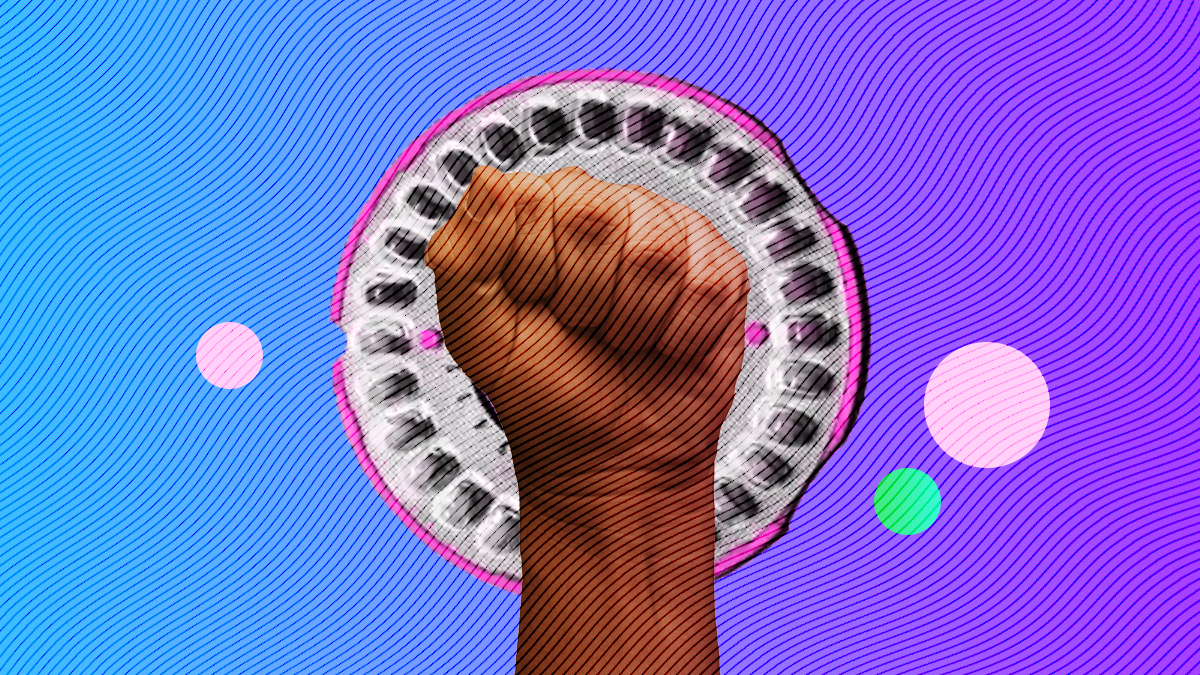Why Unions Have a Stake in the Fight for Reproductive Rights

As I watched the world respond on social media to the Dobbs v. Jackson Women’s Health Organization decision coming down on June 24, I noticed labor unions from across the country expressing their outrage. From the American Federation of Teachers to the Service Employees International Union, labor was showing up in solidarity. But as I read their statements it became clear that it was about more than solidarity. The fight for the right to abortion is their fight too because, as the AFL-CIO said, “reproductive rights are worker rights.”
While NWLC has long worked on the connection between workers’ rights and abortion access, as a college intern, I’m newer to this field, so when I first heard this, I was admittedly a little lost. But reading the responses from the different labor unions helped me realize just how closely access to abortion is connected to workers’ rights and economic security. In the words of the American Federation of State, County and Municipal Employees (AFSCME), “The decision about when and whether to bear children is fundamental to the ability to pursue self-sustaining work.”
Reproductive rights are union fights.
The fact is access to abortion care allows women to stay in education or stay in the workforce and control their own career paths. Progress in women’s workforce participation and economic security over the last several decades can be linked to greater access to reproductive health care, which includes the right to abortion. Losing that right means that women and people who can become pregnant may no longer have bodily autonomy. Make no mistake: the right to control our bodies goes hand in hand with the right to control our labor.
Unions fight every day for workers to have autonomy over their lives—from more control over work schedules to a living wage—and an essential aspect of that is being able to make your own decisions about whether, when, and how you want to parent. When we are unable to make these deeply personal decisions for ourselves, not only is our liberty at risk, but also our economic, social, and emotional well-being. Denied abortions and forced births can limit someone’s ability to advance in the workplace, expose them to pregnancy discrimination at work, and force them to face all the financial burdens and health risks that come with labor and delivery. This is especially harmful in a country where too many people do not have access to paid leave and affordable health care.
The Communication Workers of America (CWA) Women’s Committee underscored this fact, commenting that “in a country where pregnancy can have devastating economic effects due to pervasive discrimination and the lack of affordable health care or paid parental leave, working-class women are the ones who will suffer the most.” Working-class people often have a shared hope of joining the middle class, but by taking away their right to decide whether to continue a pregnancy and leaving them with a broken system that will not support their pregnancy or parenting, these people will face income and job loss.
And union fights impact reproductive rights.
Even before the Dobbs decision, many working people, particularly those in low-paid jobs, found it incredibly difficult to access abortion care because of workplace practices such as unpredictable work schedules, low wages, lack of paid leave, and lack of health insurance, to name a few. These workplace issues have been crucial for the labor movement, and they are also crucial for accessing abortion, especially now as more people will have to travel across state lines, which will require even more time and money that so many workers in this country are denied.
Racial justice has also been a crucial issue for labor, both within the movement and within workplaces, and access to abortion is a part of this fight as low-paid women of color will be hit the hardest by the attacks against our reproductive freedoms. Racialized economic disparities, lack of access to health care, and other effects of systemic racism mean people of color are more likely to need abortion care and are more impacted by abortion barriers. The United States has a long history of reproductive coercion and policing the bodies of women of color, Black women in particular, and new abortion restrictions are only prolonging this narrative.
If we want to win the fight for reproductive rights and put an end to this painful and discriminatory reality, we all must recognize that abortion access is an interdisciplinary issue and then play our part in educating those around us. So next time you hear someone say they don’t understand why “reproductive rights are workers’ rights,” take a minute to explain how reproductive freedom and bodily autonomy are core to the labor movement.
By Rindha Sudhini, former Strategy and Policy Intern




